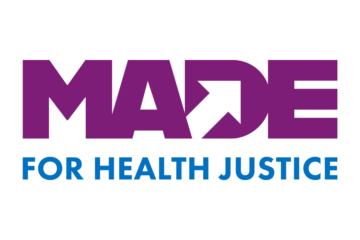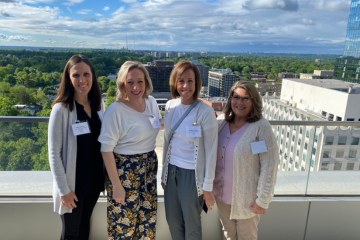In the third 2020 “Fresh Perspectives” blog post presented by the de Beaumont Foundation, Caitlin R. Williams, MSPH, a PhD candidate in the Department of Maternal and Child Health at the University of North Carolina at Chapel Hill, tells us why we can’t be apolitical when it comes to protecting the public’s health. She previously worked with a public-private partnership to dramatically reduce maternal and perinatal mortality in sub-Saharan Africa and has served as a member of the American Journal of Public Health’s 2019 Student Think Tank, the CDC’s National Preconception Health and Health Care Initiative Consumer Workgroup, and the Advisory Committee to the National Maternal and Child Health Workforce Development Center. She is a Royster Fellow and a Robertson Scholar.
In watching governments around the world (not least, our own here in the United States) fail in managing the pandemic response, a common lament among public health professionals has been that leaders are “playing politics with health.”
Many have longingly referred to a time when politics and public health were distinct entities. Yet health — and specifically, the public’s health — has always been political. If we are to rebuild badly needed public health infrastructure, the field must engage with the inherently political nature of health for all, using human rights as a moral compass to guide our advocacy
The Inherent Politics of Public Health
In recent years, public health has positioned itself as an apolitical, technocratic field, but this couldn’t be further from the truth. As a discipline, public health is political in the most fundamental sense of the word: that which is “of, or pertaining to, the polis.” Our mission is protecting and preserving the health of the public; how, then, could we construe our work as being anything other than political?
The history of public health demonstrates that the field has long understood this truth. The great public health successes of the past were born of political struggle, from the Public Health Act of 1848 through the passage of the Affordable Care Act of 2010. Even the successful smallpox eradication campaign spearheaded by the World Health Organization began as a political aspiration raised at the 1958 World Health Assembly. Throughout this history, scientists, practitioners, artists, and advocates have worked together to use data and stories to make it clear to policymakers why protecting the public’s health is of the utmost importance — with ACT UP’s embodied activism providing a template for our current times.
There has always also been a faction of the field that would prefer we stay out of politics and take on a purely technocratic role. Proponents argue that neutrality allows the field to remain above the partisan fray and avoid being cast as a political mouthpiece — which is critical for staying credible across shifting administrations. Yet if we stand for nothing, then what will we fall for? In casting health and science as neutral, we have confused being nonpartisan with being apolitical and have lost touch with the very soul of public health: the recognition that all people deserve the highest attainable standard of health and well-being.
Human Rights as a Guiding Star for the New Politics of Health
Amid a pandemic, populist nationalist politicians are launching blatant attacks on public health, part of a broader strategy to distort truth in order to consolidate political power. In the face of such attacks, the politics of neutrality no longer serve us; rather, they have left us flat-footed and unable to respond.
We may dream of a brand-new start, but our reticence to engage in politics means we dream in the dark for the most part. It’s time for us to shake off that hesitance and embrace our role as political actors — reweaving the fabric of a broken society through a shared commitment to better health and well-being for all. As we do so, human rights can give us a strong moral grounding from which to challenge populist nationalists’ strategy of division.
International human rights law has translated aspirations for equal human dignity into concrete policy, creating legally binding obligations on governments as well as mechanisms to hold governments to account. The health and human rights movement has demonstrated how to use these obligations to secure entitlements to health care and upstream determinants of health at the international level.
Yet international courts and reporting mechanisms can only get us so far. The human rights that have been enshrined globally still need to be translated into domestic policy. For that, we’re going to have to get involved in politics. We’ll get love for it, we’ll get hate for it, but we’ll get nothing if we just wait for it and wait for it.
Perhaps this stance is overly urgent. But we’ve been watching public health infrastructure crumble around us as wave after wave of political leaders defunds our work. And — help and forgive me — I want to build something that’s going to outlive me.
COVID-19 will bring a generation of future leaders to public health, much as HIV did for my generation and the one before mine. Let’s leave them with the tools to blaze past our wildest dreams.
Tune in for Caitlin’s APHA 2020 session, 4214.0 Multisector Human Rights Collaboration in the Global Fight to End Obstetric Violence, on Tuesday, Oct. 27 at 3:15 p.m. (MT)
This blog post was first published on APHA’s Public Health Newswire.





